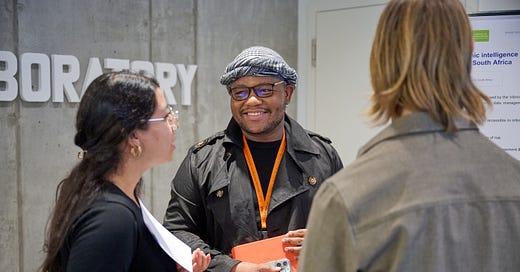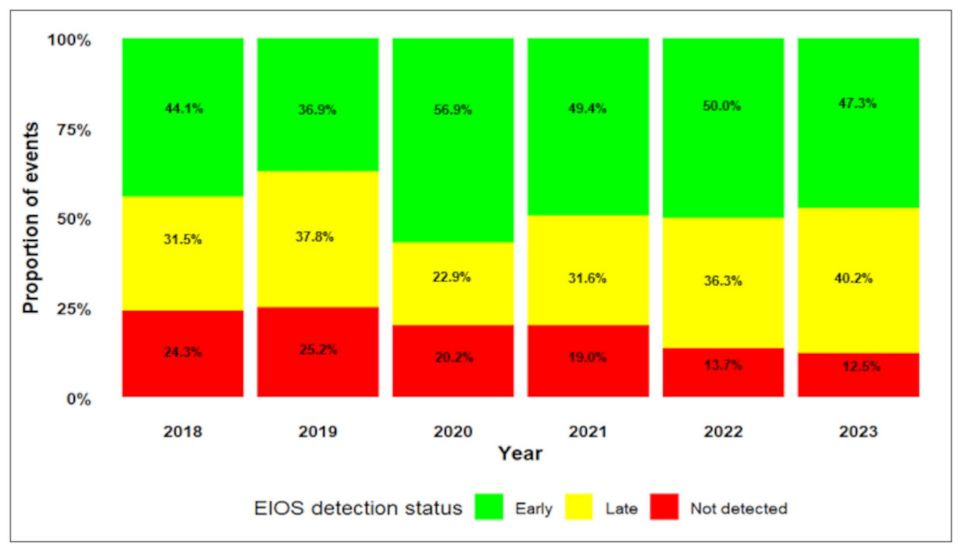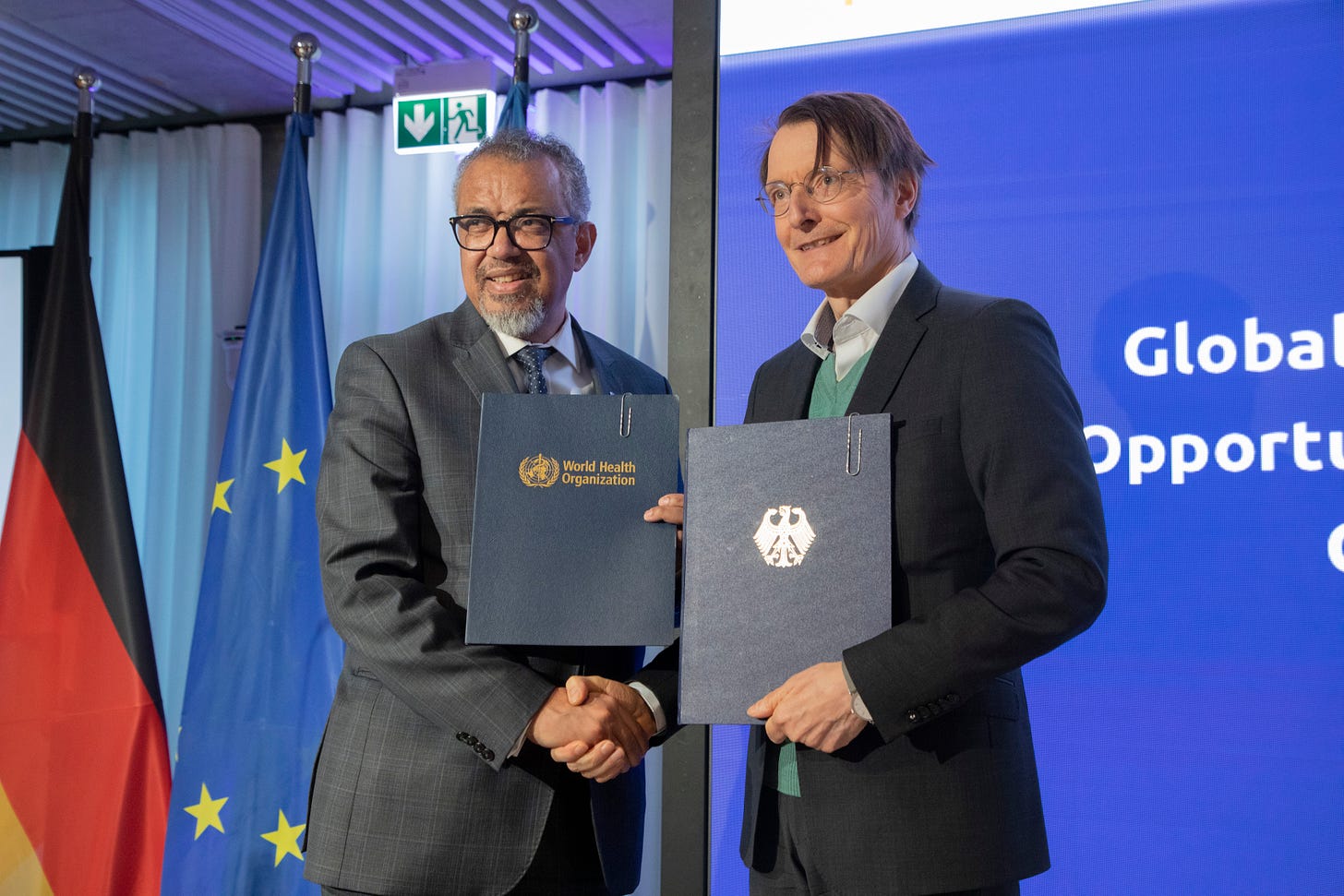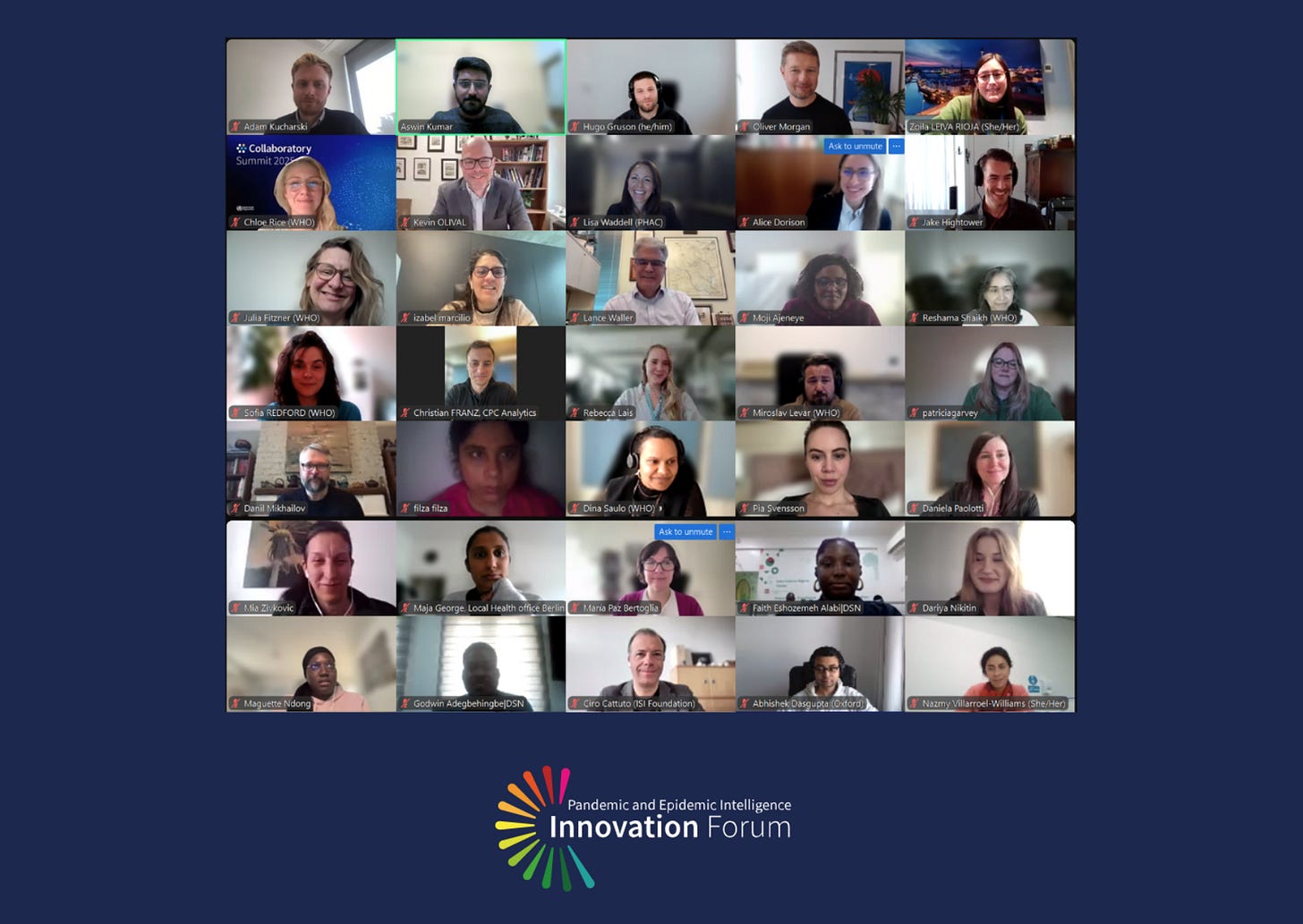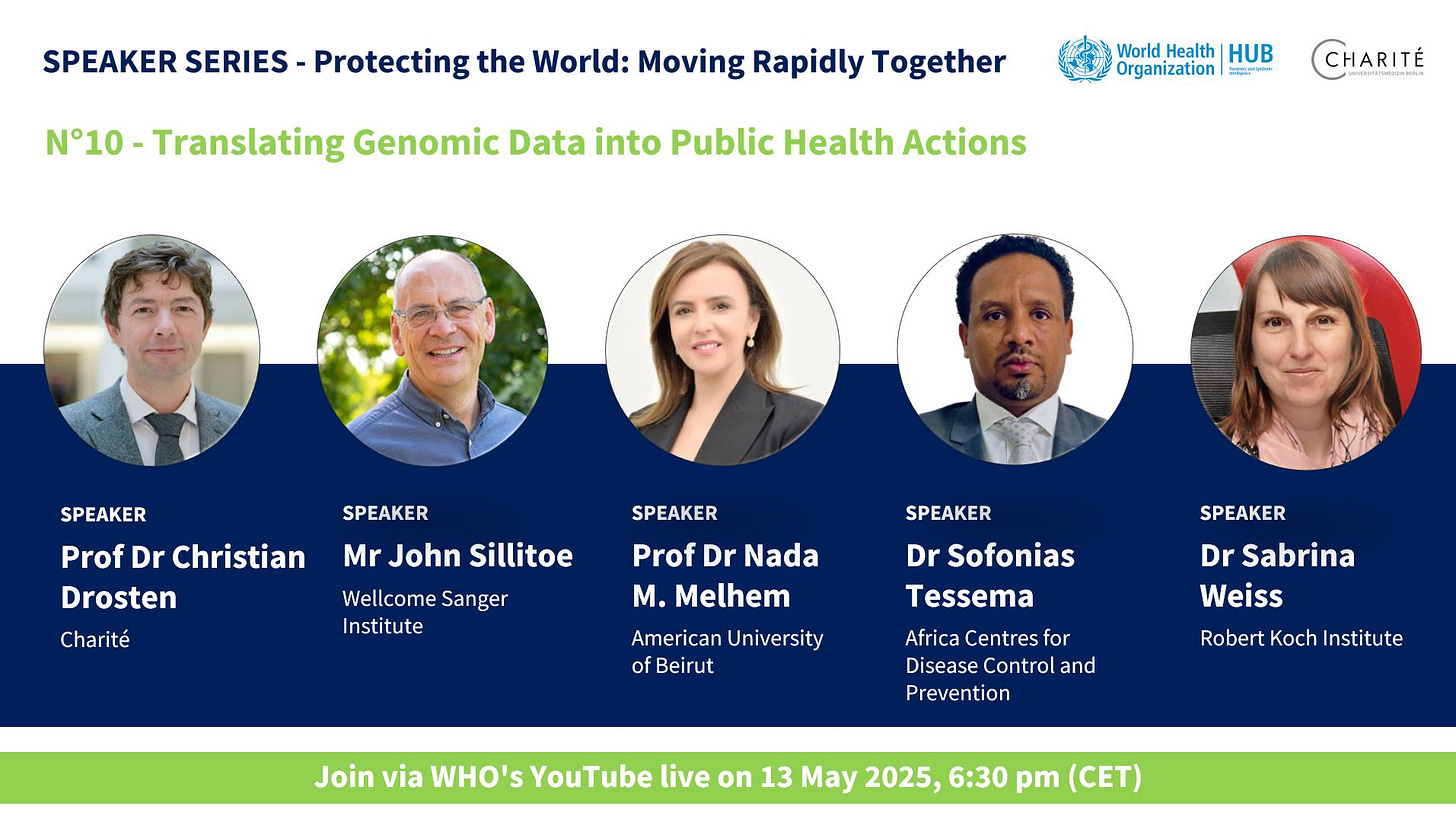Welcome to the WHO Hub for Pandemic and Epidemic Intelligence newsletter! Here we bring you the latest updates on our transformative approach to collaborative surveillance so that countries are better equipped to detect, monitor and manage public health threats.
Each month, we’ll spotlight key projects, share insights from our experts, recommend resources and highlight upcoming events and opportunities.
We look forward to hearing from you! If you have feedback or questions, you can contact us here.
📢 Partner Voices
“My name is Wellington Maruma, an infectious disease epidemiologist at the National Institute for Communicable Diseases (NICD) in South Africa, within the Division of Public Health Surveillance and Response.
In 2024, I was selected for the GOARN Berlin Fellowship Programme, hosted by the WHO Hub for Pandemic and Epidemic Intelligence and the Robert Koch Institute (RKI). At the time of my application, South Africa had just responded to its second cholera outbreak in the last two years. These events had revealed critical gaps in our surveillance system - our data was fragmented, often delayed at local levels, and largely descriptive. While we could report on the current situation in almost real-time, we lacked the analytical tools to anticipate future trends.
Through the GOARN fellowship, I focused on strengthening cholera surveillance by developing a more predictive and integrated approach. My project aimed to enhance our use of geographic information systems (GIS), build stronger multi-level partnerships across local, provincial, and national health stakeholders, and introduce disease modelling techniques for outbreak risk assessment - an area previously underutilized at the national level. I also facilitated a workshop with key surveillance stakeholders that provided actionable recommendations to improve surveillance systems by addressing bottlenecks.
With mentorship from data scientists at the WHO Hub and RKI and attending classes from AppliedEpi, I improved my technical capacity in R coding and developed a reproducible R-based template for cholera surveillance. This template was designed to be adaptable for other priority diseases under surveillance at the NICD, contributing to broader epidemic intelligence efforts.
A key milestone was engaging with the WHO cholera team in Geneva, where we reviewed and aligned South Africa’s digital surveillance outputs with global reporting standards. This exchange highlighted several critical reporting elements we had previously overlooked and informed efforts to ensure our systems meet international expectations going forward.”
➡️ Find out more about the GOARN fellowship programme, a joint initiative of the WHO Hub for Pandemic and Epidemic Intelligence, the Robert Koch Institute and WHO’s Global Outbreak Alert and Response Network (GOARN).
📖 What to read
The Epidemic Intelligence from Open Sources (EIOS) initiative, which is hosted at the WHO Hub in Berlin, is transforming how countries detect and respond to public health threats worldwide. A recent study highlighted its impressive performance in Africa:
Detected 81% of public health events reported to WHO.
Provided early signals for over 80% of events across 28 countries.
Identified 50% of events before official reporting in 22 countries.
Powered by natural language processing and machine learning, EIOS helps countries identify outbreaks and emergencies swiftly, saving lives and minimizing impact. While the EIOS team continuously improves and adapts the system, it is already a game-changer for health security in the African region.
➡️ Read the complete study here.
📺 What to watch
On 2 April 2025, the German Ministry of Health hosted a high-level discussion at the WHO Hub in Berlin. Minister of Health Prof Dr Karl Lauterbach, WHO Director-General Dr Tedros Adhanom Ghebreyesus, and key German stakeholders addressed the future of global health in light of the United States’ withdrawal from WHO and significant budget reallocations by several Member States.
Minister Lauterbach reaffirmed Germany’s continued political, technical and financial support to WHO during these challenging times. Dr. Tedros expressed his gratitude for Germany’s steadfast commitment to global health, highlighting that such challenges also bring opportunities. He emphasized that WHO is using this moment to become more focused, empowered and independent and shared how proud he was to see the growing impact of the WHO Hub in Berlin.
➡️ Watch the event recording here.
🔁 What to share
More than 170 participants joined our latest virtual Innovation Forum to explore ways to foster cross-community collaboration to advance pandemic and epidemic intelligence.
Dr Julia Fitzner introduced Collaboratory, an initiative of the WHO Hub in Berlin, which provides a dynamic digital space for epidemiologists, data scientists, developers, modellers and other experts to co-create, test and refine cutting-edge tools for advanced analysis.
Moderated by Kevin Olival (EcoHealth Alliance), the panel discussion provided an opportunity to hear from the diverse communities that are active on the Collaboratory platform.
➡️ Read and share our LinkedIn post to learn about the key outcomes of the discussion.
➡️ Sign up to join future sessions of the Innovation Forum.
📅 Upcoming events and opportunities
Speaker Series
Join us for our upcoming Speaker Series, jointly organized with the Charité Center for Global Health, to find out how genomic data can be effectively translated into public health actions.
Together with our speakers, we will:
✅ Explore what it takes to bridge the gap between genomic data and public health impact.
✅ Learn how initiatives like the International Pathogen Surveillance Network (IPSN) are driving innovation and transformation.
✅ Hear from partners and countries about efforts to foster collaboration and build systems that translate genomic data into actionable insights for emergency preparedness and response.
Date: 13 May 2025, 6:30 pm to 8:00 pm (Central European Time)
Location: WHO Hub for Pandemic and Epidemic Intelligence, Prinzessinnenstraße 17/18, 10969 Berlin & digital via the WHO YouTube Channel
Register: https://indico.un.org/event/1016845/
Follow us on LinkedIn
The WHO Pandemic Hub is on LinkedIn! Follow us for regular updates in English and German on how we support public health intelligence communities worldwide with innovative solutions, knowledge-sharing networks and stronger systems for better decisions during epidemics and pandemics.
👉 Follow us and leave us a comment, share or like!

